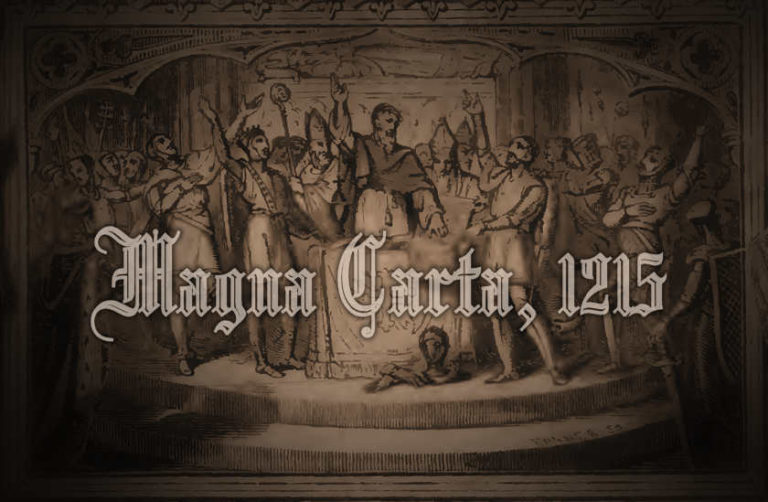The Magna Carta in 1215 established the following principles:
- everyone is subject to the law, even the King,
- individuals have rights,
- everyone has the right to justice,
- and everyone has the right to a fair trial.











